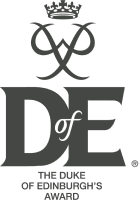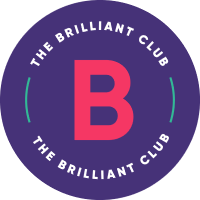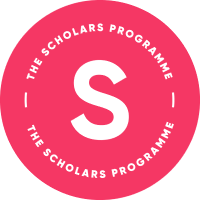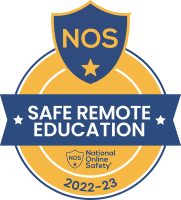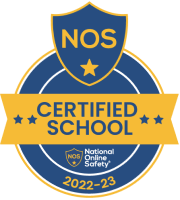Faculty of Science and Physical Education
Subjects within the faculty deliver various topics that help to promote students’ Spiritual, Moral, Social and Cultural development as well as health and wellbeing.
Where ever possible students are also asked to consider British values and how they relate to science and technology.
Science
Spiritual Development
- Students are encouraged to debate issues where religious groups may have differing views such as the use of stem cells.
Moral Development
- Students discuss the rights and wrongs about the study of cells for medical research e.g. using animals
- Students discuss animal and human testing to better understand the body systems where they are asked to weigh up both arguments
- Students learn the importance of fitness and health where they consider the effects of different drugs on the body and relate drugs effects to the law (drug categories, punishment etc)
- Students discuss clinical trials using human cells, animals and human volunteers looking at numerous arguments. Students also have to consider the use of placebos in trials and the implications of giving patients false information.
- Students discuss the study of brain injuries and whether someone who is not of sound mind can consent to treatment and trials.
Social Development
- Students in all years are given various opportunities to work in small and large groups where they are encouraged to lead, communicate and co-operate.
Cultural Development
- Students learn some aspects of history and culture in science such as the development of different scientific ideas, inventions and practices.
Personal Development
- All year groups are constantly given opportunities to develop skills and knowledge to help them in the wider world from practical investigative skills, collaborative approaches to tasks and consideration of ethical issues from different viewpoints.
Health Development
- Students complete a unit on microbes and disease and learn various aspects of staying healthy such as hygiene. Also the use of vaccines, antibiotics and the issue of antibiotic resistance are discussed.
- Students complete a unit fitness and health where they look at the benefits of exercise, balanced diet and avoiding drugs (including smoking and alcohol). Much is covered on the risks of drug and alcohol abuse.
- GCSE science discusses the use of medicines and resistance in great detail as well as the risks of obesity.
Confidence/Self Esteem Development
- Students in all year groups are asked to give their own opinion on issues particularly those that have no straight forward right and wrong answer. They are encouraged to not be swayed by others and to stick to opinions where they feel it is right.
Knowledge of Law/Public Institutions
- Key stage 3 students cover issues of drugs and the law including drug categories and their associated punishments.
- GCSE students are given the opportunity to discuss debates about GM crops and how best to voice an opinion in a lawful way.
Democracy - GCSE students discuss how countries decide on the use of GM crops on a national scale e.g. who decides and who is the decision reached.
Physical Education
SMSC and British Values Grid
Spiritual Development
During the range of activities that students can participate in (whether core PE lessons, examination subjects or extra-curricular Physical Education), students can develop a sense of enjoyment and fascination in learning about themselves, others and the world around them. Students should be consistently encouraged to use their imagination and creativity in their learning, and showcase a willingness to reflect on their own and others experiences.
Examples of Spiritual lessons in Physical Education:
- Creating and developing own attacking and defensive set plays and tactics
- Reflecting and critiquing their own and others performances
- Using discovery style to allow students to have their own thoughts, ideas and concerns
- Questioning students throughout lessons – Using Blooms Taxonomy
- Units of work focusing on Team building – Motivation, determination and character building
Moral Development
PE in general teaches students about code of conduct, etiquette, handshake before and after matches, applauding the opposition, fair play, unwritten rules and sportsmanship. Students should abide by the rules and regulations, gaining a good understanding of rules of sport and the importance of infringements such as penalties and red cards allow students to understand the consequences of their actions which in turn helps students apply this understanding to their own lives.
The concepts of self-discipline to excel are essential. Students should be taught that the only way you can achieve in sport to a high standard is if you work hard and if you can discipline yourself to train and apply yourself.
Examples of Moral lessons in Physical Education:
- Moral dilemmas – students investigate into deviance issues in sport such as the use of performance enhancing drugs and match fixing in GCSE examination courses.
- Promote fair play and team work in lessons
- Encourage good sportsmanship throughout
- Respect with equipment both when using it and when storing it
- Following instructions and decisions made by officials. Abiding by the rules, in all sporting situations.
- Respect for their facilities and the environment they are active in
- Listening to teacher and peer feedback on particular sporting skills
- Promote trust with peers through team building activities
- Using students as sports leaders/ambassadors
- Sports Relief
Social Development
Students in PE can use of a range of social skills in different contexts, including working and socialising with students from different religious, ethnic and socio-economic backgrounds. The willingness to participate in a variety of social settings, cooperating well with others and being able to resolve conflicts effectively. An interest in and understanding of, the way communities and societies function at a variety of levels. Also students can develop their friendship and social mixing through involvement in inter, intra school competition and extra-curricular clubs.
Examples of Social lessons in Physical Education:
- Creating a sense of community in lessons and clubs
- Interact with the community through coaching and leadership
- Encourage students to recognise and respect social differences and similarities
- Celebrate sporting success both in and out of school
- Use of sports leaders running clubs and activities
- Encouraging the attendance to extracurricular activities
- Promoting team work throughout lessons supporting one another to develop their skills in a cooperative situation.
Cultural Development
The PE department can encourage a willingness to participate in sporting opportunities that will help to develop positive attitudes towards different religious, ethnic and socio-economic groups in the local, national and global communities.
Examples of Cultural lessons in Physical Education:
- Learning about the developments of sports in different countries
- Learning where different sports originate from and what the national sports of different countries are
- World Cups and Olympic and Commonwealth games
- Exploring and respect a variety of different cultural dances
- Gaining an understanding of different sports and their foundations
- Use of international examples of different athletes and their achievements
- Cultural engagement through elite performers both at school and in their own sporting environment.
